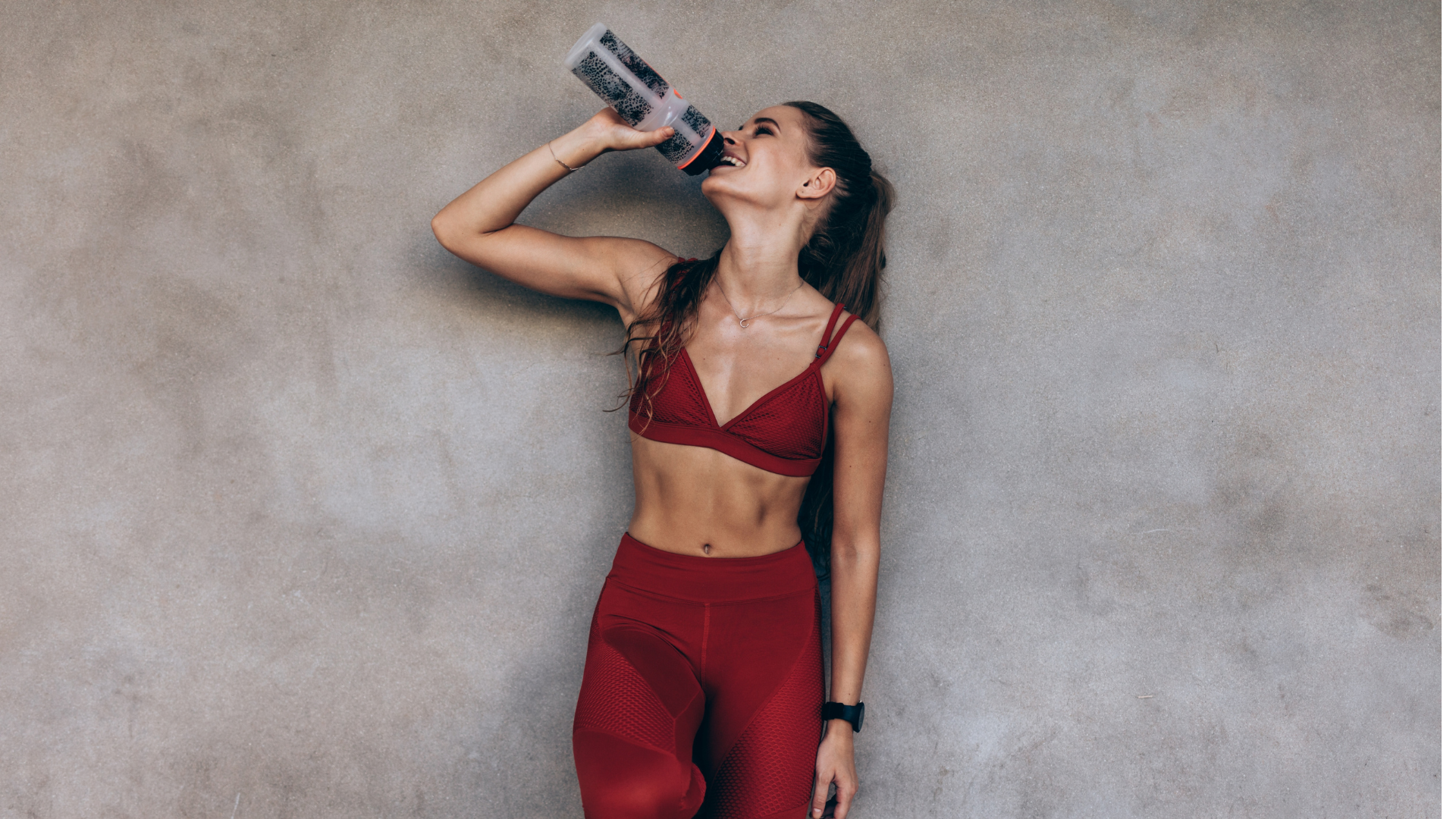You may have read that consuming creatine promotes weight loss. Let's be clear, creatine is not a fat burner and does not directly accelerate weight loss. On the contrary, it may even cause a slight initial weight gain due to natural water retention in muscle cells.
Its main role is to improve performance during high-intensity exercise. It is by no means a miracle cure that will directly modify your body composition.
Creatine monohydrate can indirectly help fat loss goals by enabling more intense workouts that increase overall caloric expenditure. It can also help preserve muscle mass during a phase of caloric restriction, which is essential for maintaining an active metabolism.
Whether you're on a diet or on a diet, let's take a look at how to use this dietary supplement effectively to achieve your goals.
Creatine and weight loss, what's the connection?
How does creatine work in the body?
Creatine plays a fundamental role in our body's energy metabolism. It is directly involved in the regeneration of ATP (adenosine triphosphate), our main source of cellular energy during intense, short-term efforts.
This molecule, naturally synthesized by our body from three amino acids (glycine, arginine and methionine), can also be supplied by our diet (red meat, fish such as tuna or salmon).
Scientific studies show that creatine supplementation improves maximum strength and training volume. The aim of a creatine monohydrate cure is to saturate creatine stocks over the long term, which is impossible with a balanced diet.
Is there an initial weight gain at the beginning of the treatment?
Yes, creatine intake can lead to intra-cellular water retention linked to its transport into muscle cells. This phenomenon is harmless, natural and reversible.
This water retention is not subcutaneous and can add up to 1-2 kg. It occurs mainly inside the muscle, and therefore does not lead to a "fuzzy" or "swollen" appearance, as some fear.
This intracellular water has no connection whatsoever with body fat or muscle mass gain.
Women get exactly the same benefits as men in terms of strength, energy and recovery. Contrary to popular belief, creatine does not induce "masculine" muscle development in women - their hormonal physiology simply doesn't allow it.
However, it is essential to understand that consuming creatine does not make you lose weight directly. This supplement has no thermogenic effect, does not trigger fat burning and does not suppress appetite. Nor does creatine boost resting basal metabolic rate. It cannot replace a well-calculated caloric deficit and an appropriate diet.

What are the real effects of creatine?
Can it help you achieve your goals?
Creatine can help you train more intensely and therefore indirectly burn more calories during a workout, but it has no impact on weight loss.
To date, the proven benefits of creatine are :

Accelerated regeneration of Adenosine TriPhosphate (ATP)

Increased muscular strength for short, intense efforts

Improved resistance to fatigue during high-intensity sets

Accelerated regeneration of Adenosine TriPhosphate (ATP)

Increased muscular strength for short, intense efforts

Improved resistance to fatigue during high-intensity sets

Indirect stimulation of metabolism through longer, more intense sessions

Improved performance in sprints and explosive exercises

Reduced brain damage and neuronal recovery
Creatine and muscle toning: an effective slimming combo?
In times of caloric deficit, the body naturally tends to reduce its physical performance to save energy.
Creatine enables you to maintain training intensity despite this energy restriction. This ability to maintain intense workouts translates into greater energy expenditure, helping to reduce body fat.
These more productive sessions indirectly boost overall metabolism, creating a more favorable environment for fat mobilization.
Another often underestimated benefit concerns fatigue and motivation. Creatine supplementation reduces the feeling of exhaustion that usually accompanies restrictive diets. The result: more regular training!
Not all creatines are created equal ! To maximize benefits during a lean phase, we recommend pure creatine monohydrate, with no additives or sweeteners, to avoid any negative impact on calorie restriction or overall health.
Creatine is particularly useful for athletes seeking to improve muscle definition while maintaining performance.
When and how should creatine be taken during weight loss?
Taking creatine just before trainingdoes not accelerate weight loss. Creatine has no immediate effect on lipid metabolism or energy expenditure. Its effectiveness depends on a long-term supplementation strategy. So there's no particular time of day to favor creatine: the key is to make it part of your daily routine.
Creatine works by saturating muscle reserves, hence the importance of regular intake.
There are two main protocols:
- Protocol with loading phase (Professor Roger Harris): 20g per day divided into 4 doses of 5g creatine per day for 5-7 days, then maintenance with 3-5g.
- Progressive protocol (Professor Eric Hultman): creatine dose of 3-5g per day from the outset, with no loading phase, for more gradual but similar long-term results.
During weight loss, taking creatine via the progressive protocol has the advantage of limiting initial water retention, and reducing the risk of digestive discomfort sometimes associated with the loading phase.
The combination with carbohydrates improves creatine absorption thanks to the insulin response they provoke. However, in the dry phase with carbohydrate restriction, this strategy may prove incompatible with calorie targets. In this case, post-workout intake is preferable, at a time when insulin sensitivity is naturally high.
Protéalpes' advice:
The ideal maintenance dosage is 3 to 5 g a day. With this quantity, you will maintain a good level of vitality. You can start the cure with around 20 g a day (well separated into several intakes and with food) over 5 days, to quickly reach the desired levels.
Maintaining this dosage is not advisable and unnecessary beyond 5 days. For example, the often-advised intake of 10g of creatine per day is excessive in relation to real needs and offers no advantage in terms of performance or fat loss.

What are the differences between creatine and whey?
Naturally present in our muscles, creatine is essential for rapid energy production. It is therefore exploited by the body during high-intensity efforts. As a regular and assiduous sportsman, you already know the effects of creatine on mass gain:
- Increased strength
- Performance enhancement
- Better muscle development
This is more than enough to convince top athletes, especially as this product also promotes muscle cell recovery .
Whey, on the other hand, also known as whey protein, is a product derived from milk, after more or less thorough mechanical filtration. Naturally loaded with high-quality proteins, it is the natural element containing the most essential amino acids and BCAAs per 100g of product. Absorbed very quickly by the body, this product supports muscle recovery after intense physical exercise.

Whey is also prized for its ability to promote muscle growth. Unlike creatine, which can be taken at any time of day, whey is generally taken after training. That's when your body is best able to synthesize muscle proteins.
But can whey be consumed before training?
This option doesn't really offer any advantages for athletes (high-level or otherwise). Although technically possible, there is no real nutritional benefit, and digestion may even be a problem during the effort that follows.
Creatine or whey, what's best for slimming?
When choosing between creatine and whey, you need to consider your expectations as an athlete. With creatine, you'll increase your strength and performance during your training sessions.
With whey, you'll benefit from effective support in terms of muscle growth, structure and recovery. The choice therefore depends on your own objectives and the way you train.
You've probably noticed that these two supplements seem to complement each other. Do you think combining creatine and whey can really benefit you?

Can creatine and whey be combined?
To answer this question, it's important to stress that the mechanisms of action of these two products are different, so they are not, a priori, opposed. Both compounds are considered safe for long-term use, and no studies have shown any negative cross-effects.
For athletes undergoing intense, regular weight training, the creatine/whey combination (over targeted periods) has been shown to be more effective than whey alone in developing muscle strength and mass.
From a benefits point of view, the whey/creatine blend seems to be a winner. But does it present any health risks?
The answer is no, when used as part of a classic, non-continuous course of treatment. In fact, neither dietary supplement has any adverse effects on the body. They can be taken at the same time, with no interactions to worry about.
Please note, however, that we're talking here about whey and creatine as such, and not about substances that may be added to finished products, which can be potentially harmful.
As we mentioned earlier, creatine and whey are complementary products. While the former develops fast energy and strength for more intense work, the latter promotes recovery and physiological adaptation.
Does protein supplementation accelerate weight loss?
Like creatine, whey does not lead to direct weight loss. Creatine has no impact on weight loss. It's whey that, depending on how it's used, can help you achieve your weight-loss goals. On the one hand, protein-enriched food supplements promote satiety.
By acting as appetite suppressants, they can help you reduce the risk of untimely snacking or accompany lighter, complete meals. This is often the first challenge of a slimming diet.
As you know, fat mass gain is the result of calorie intake exceeding expenditure. Conversely, if expenditure exceeds the caloric intake available to the body, body fat decreases. So, to lose weight, you need to rebalance your calorie intake and/or increase your energy expenditure through physical activity. Beware, however, of the loss of muscle volume, which is the first to be affected by a low-calorie situation.
This is where products like whey come into their own, protecting the loss of lean mass.

What's more, it's scientifically recognized that whey consumption combined with strength training tends to decrease the ratio of fat mass to lean mass. In other words, if athletes don't see a significant difference on the scale, they do observe a development of muscle mass to the detriment of fat mass.
How can whey help you during a slimming diet?
As you can see, whey and creatine don't make you lose weight. There is still no miracle solution to weight loss. What is needed is a combination of appropriate sports training and a balanced diet.
If you train regularly, these protein formulas will help you build muscle mass.
In the context of a slimming diet, they'll do even more than that. As mentioned above, if your daily calorie and protein intake doesn't cover your energy needs, your body will tend to favor muscle loss over fat. This is muscle wasting for energy.
Thanks to whey, which encourages cell regeneration in the muscles, the latter benefit fromeffective protection in the event of a slightly reduced caloric intake, as in the case of caloric re-adaptation. In this way, you limit the risk of muscle wasting during your diet.
As you'll have gathered, the difference between creatine and whey lies in the way they act in our bodies. Whereas creatine acts on our muscles to increase energy tenfold during intense effort, whey is useful for encouraging muscle protein synthesis to promote recovery and physiological adaptation.
In concrete terms, these products have no direct effect on fat consumption. But they do support an optimal, healthy metabolism in people who follow regular physical training and have a balanced, adapted dietary intake.
Further information
Is creatine harmful to the kidneys when dieting? Creatine is not harmful to the kidneys in healthy people, even during a restrictive diet. Scientific research confirms that creatine supplementation at recommended doses causes no damage to kidney function.
Does stopping creatine cause muscle loss? Stopping creatine does not cause direct muscle loss, but rather a possible very slight decrease in volume due to reduced water retention. The actual muscle gains achieved during supplementation are preserved if you maintain your diet and training program.
Scientific references and sources
The effect of whey protein supplementation with and without creatine monohydrate combined with resistance training on lean tissue mass and muscle strength by Burke et al. International Society of Sports Nutrition position stand: safety and efficacy of creatine supplementation in exercise, sport, and medicine by Kreider et al.
Effects of creatine supplementation and resistance training on muscle strength and weightlifting performance by Rawson and Volek
Creatine Supplementation and Upper Limb Strength Performance: A Systematic Review and Meta-Analysis by Lanhers et al.
Creatine supplementation and endurance performance: surges and sprints to win the race by Forbes et al.
Dietary Supplements for Health, Adaptation, and Recovery in Athletes by Rawson et al.
Beyond muscle: the effects of creatine supplementation on brain creatine, cognitive processing, and traumatic brain injury by Dolan et al.
Creatine Supplementation and Brain Health by Roschel et al.
Muscle creatine loading in men by Hultman et al.















